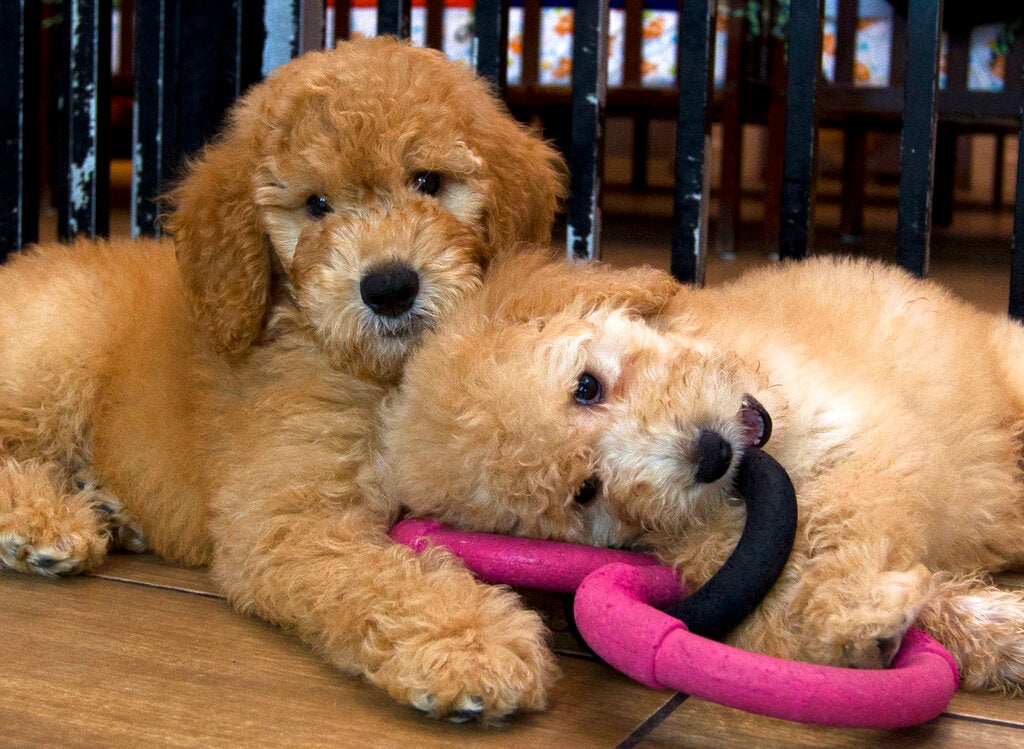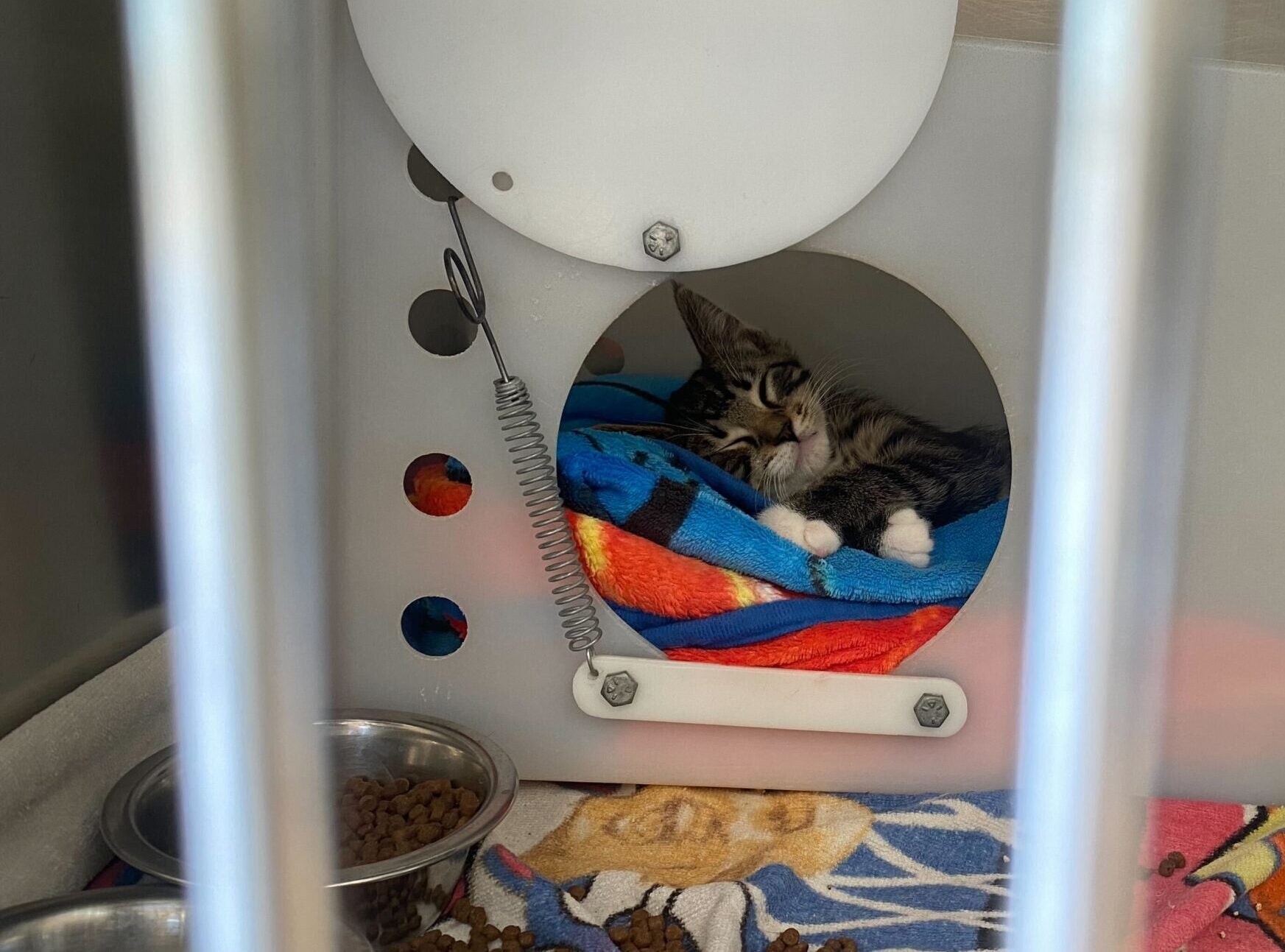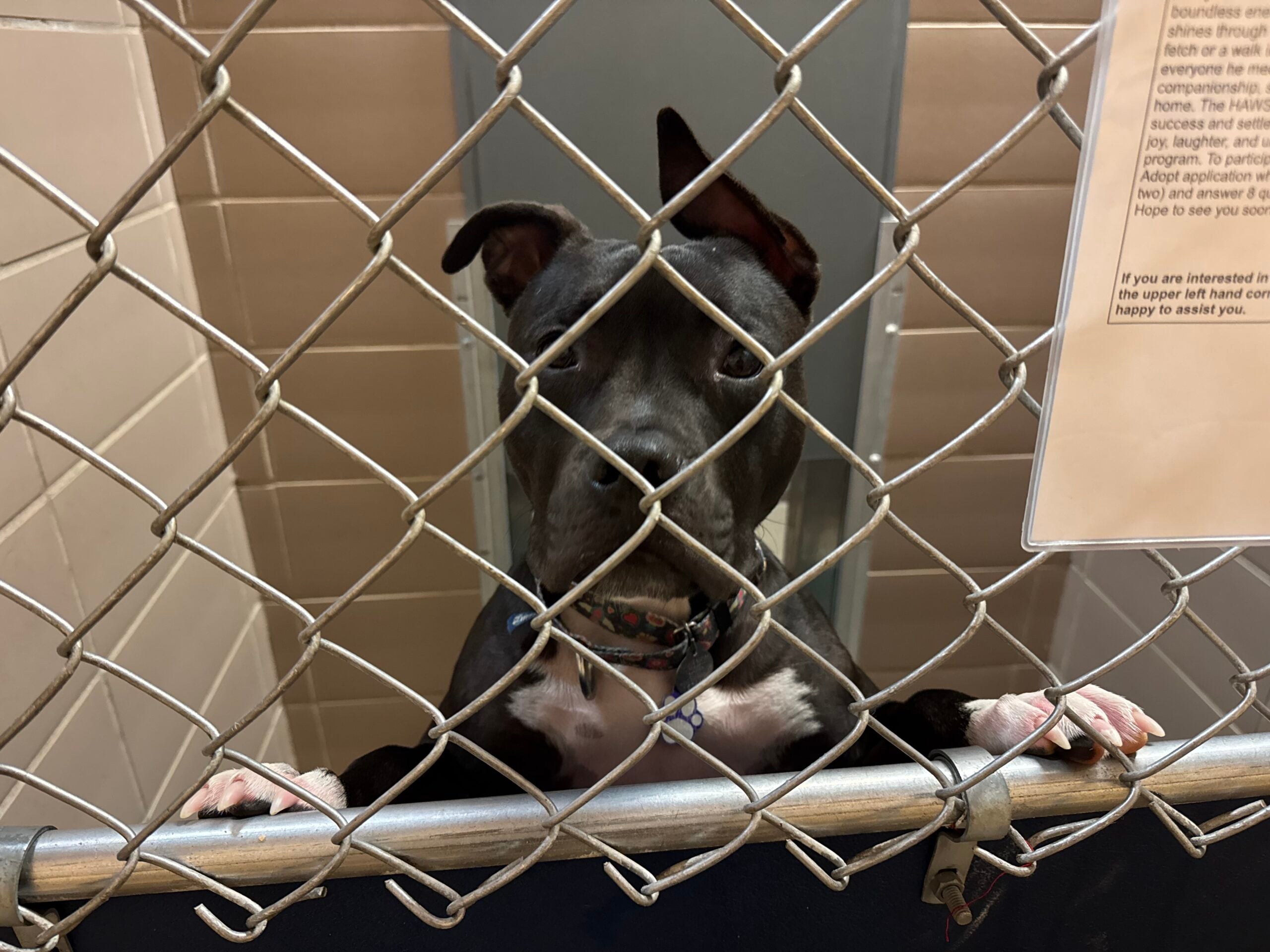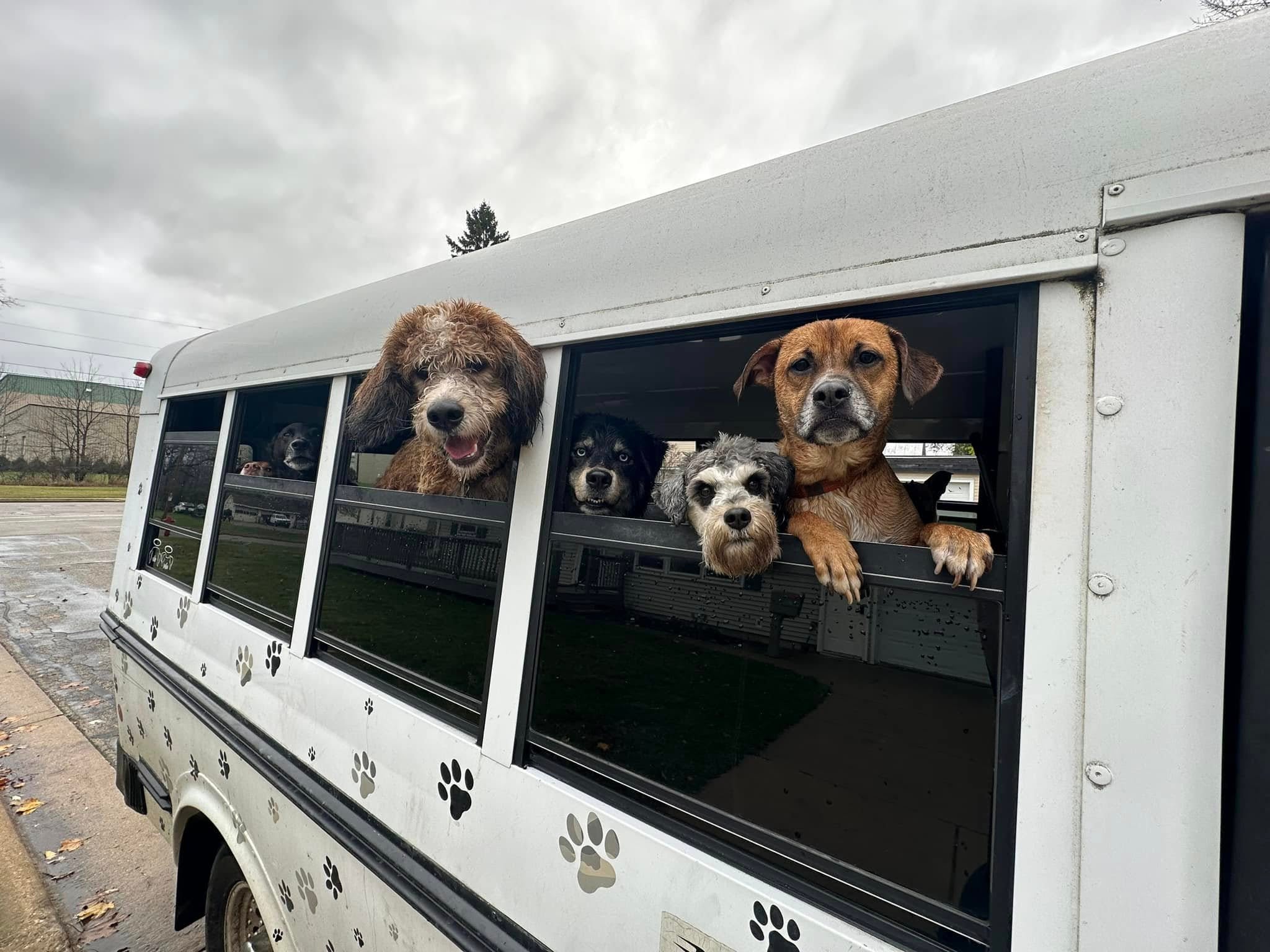When looking for a new canine companion, some people adopt their pet through their local shelter. Others turn to commercial breeders that operate in Wisconsin and around the country.
But how do you know if the breeder is following the law and caring for their animals properly?
The issue of ethical dog breeding is especially relevant to those looking for a puppy in Wisconsin. Earlier this month, Iowa-based advocacy group Bailing Out Benji published its quarterly review of USDA inspection violations at dog and cat breeders nationwide.
News with a little more humanity
WPR’s “Wisconsin Today” newsletter keeps you connected to the state you love without feeling overwhelmed. No paywall. No agenda. No corporate filter.
According to the report, federal inspectors cited 10 Wisconsin dog breeders for violations during the second quarter of this year.
In April, the Humane Society of the United States published its annual report called the “Horrible Hundred,” which looks into state and federal inspection violations of breeders in the United States. Ten Wisconsin facilities — 10 percent of the breeders listed in the report — were also on that list.
Authors of the report said that the number of Wisconsin breeders on the list is higher than ever before. Kathleen Summers, director of outreach and research for the Stop Puppy Mills campaign at the Humane Society of the United States, said that the number of inhumane breeders in Wisconsin is probably higher than the data suggests.
“We received no records from the state of Wisconsin this year. We only had USDA records to go on — in other words, people who sell to pet stores,” Summers told WPR’s “Wisconsin Today.” “So we don’t know what Wisconsin’s Department of Agriculture, Trade and Consumer Protection is doing as far as upholding or enforcing its law.”
When reached for comment, the Wisconsin Department of Agriculture, Trade and Consumer Protection said that it is still in the process of fulfilling the Humane Society’s records request.
Summers joined WPR’s “Wisconsin Today” to talk about dog breeding in Wisconsin and share some tips on how to ethically purchase a puppy.
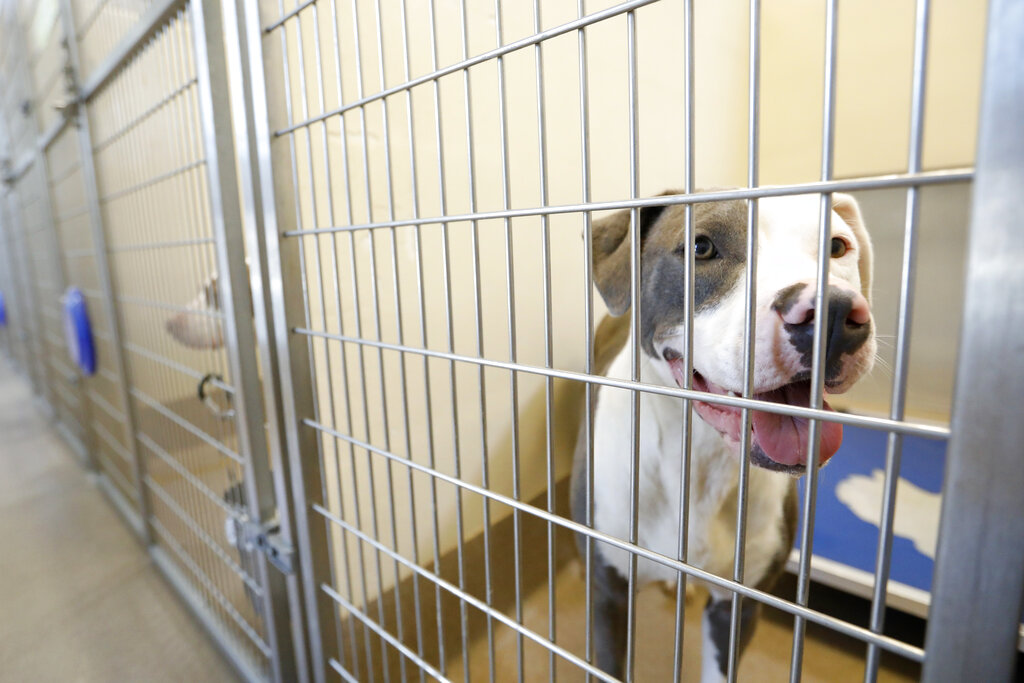
Adopt from a shelter or rescue
Summers said that the first thing prospective dog owners should consider is adopting from an animal shelter or breed-specific rescue rather than buying from a breeder.
And she said that they might not need to sacrifice their preferences to do it.
“Shelters are really overwhelmed with dogs, which is a very sad thing, but it does also mean that there’s a greater variety of dogs in shelters than ever before,” Summers said. “They have puppies, they have dogs of different breeds and different sizes, and that’s a wonderful way to get a dog while also saving a life.”
Visit the breeder in person
If consumers are sure they want a purebred puppy of a specific breed, Summers said it’s important to visit the breeder in person before buying.
“Visit the breeder’s home and make sure that (you) meet the parents of the dogs. Make sure that those parents are looking happy and healthy and friendly. When they’re happy to meet you, you know that that’s a well-raised dog,” Summers said.
“A reputable dog breeder will pay careful attention to the health and welfare of their breeding dogs as well as their puppies,” Summers added. “They breed very sparingly, and they usually keep the dogs in the home with them.”
No matter how good a breeder looks on their website, avoid buying a puppy online without going to see them first.
“A lot of people are able to have very professional looking websites that show you only what they want the public to see, and the public isn’t really seeing what’s behind those pretty pictures,” Summers said.

Don’t buy from a pet store
Summers said that puppies sold in pet stores are often bought from unethical breeders, and that keeping a puppy in a pet store is bad for the dog’s wellbeing in the long run.
“Those early weeks of a puppy’s life, especially right when they leave the mom and their siblings, that’s a very formative period for them, because they’re learning proper socialization,” Summers said. “If they’re spending those formative weeks in a pet store cage or on a broker truck being delivered somewhere, they’re not getting that one-on-one care that they really need to develop well psychologically.”
While several states and hundreds of localities — including some in Wisconsin — have banned the sale of puppies in pet stores, Wisconsin as a whole has not.
“(The laws) encourage people to go to more humane places to buy puppies,” Summers said.
Stick to smaller breeders
Summers said that one “red flag” to look out for is a breeder that has a large number of dogs.
“The larger this facility, the harder it is for the owners to keep up, even if they do have some employees,” Summers said. “So a facility with dozens or even hundreds of dogs can be very detrimental to the animals. There just usually isn’t enough space or enough personal attention for the animals to keep them happy and healthy.”
Be wary of ‘designer’ dog breeders
Summers said that those looking for particularly popular mixed breeds — sometimes referred to as “designer breeds”— should be wary of breeders looking to profit off of their popularity. Right now, poodle mixes and other non-shedding breeds are among the most popular, including golden doodles, bernedoodles and maltipoos.
“There’s a lot of ways that puppy mills can exploit these dogs, because they don’t even have the very minimal requirement of filing paperwork with a dog registry,” Summers said. “Often we find that the so-called ‘doodle’ breeds that are being sold online, if you do a DNA test, it’s often not even the type of dog that the seller claims it is.”
If you decide you want one of these popular poodle mixes, do some extra research to find a reputable breeder.
